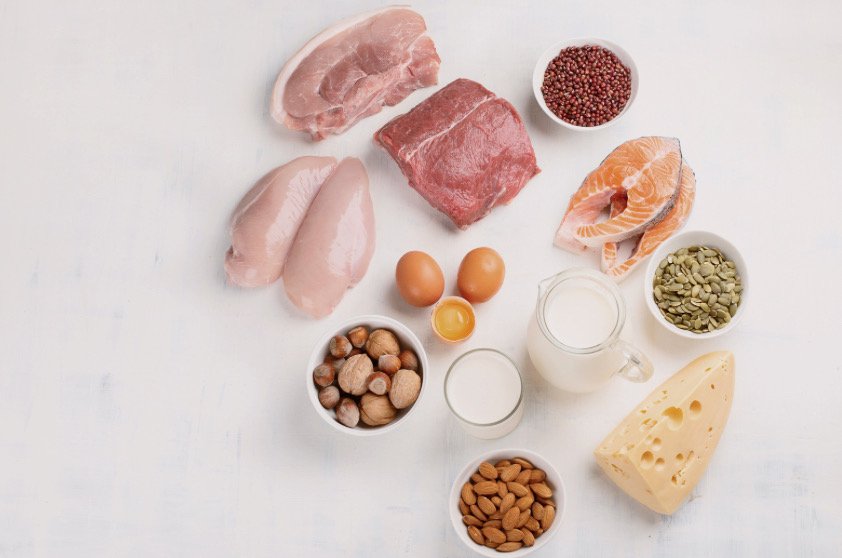Nutrition for Injury Recovery
Diet can be a significant factor when recovering from an injury. Here are some macro- and micronutrients to consider in order to optimize nutrition, control inflammation, minimize muscle-atrophy, and speed up the recovery process.
PROTEIN
The body uses protein to build soft tissue, control inflammation, maintain muscle mass, and repair damage after an injury. Adequate lean protein throughout the day is essential for recovery, muscle mass retention, and strength.
Foods high in lean protein include fish, poultry, lean pork, tofu, lean beef, dairy, eggs, nuts and seeds, beans, peas, and lentils.
ESSENTIAL FATTY ACIDS
Eating foods that are rich in omega-3 fatty acids helps reduce excessive swelling and speed up recovery.
Foods high in omega-3 fatty acids include cold water fatty fish (e.g. salmon, mackerel, and sardines) and nuts and seeds (such as flaxseed, chia seeds, and walnuts).
Oppositely, excessive consumption of some omega-6 polyunsaturated fatty acids can increase inflammation, so it is best to minimize your intake of these.
Omega-6 fatty acids are found in seed oils like corn, safflower, sunflower, grape seed, soy, peanut, and vegetable oil, mayonnaise, many store-bought salad dressings, fast food, and processed foods.
VITAMIN D & CALCIUM
Vitamin D helps store minerals in your bones and increases the amount of calcium your blood can absorb.
The best sources of vitamin D are oily fish (including salmon, mackerel, and sardines), egg yolks, red meat, and liver.
Calcium helps build strong bones and heal bone fractures.
Foods highest in calcium include dairy products, soybeans, and dark green leafy vegetables (e.g. kale, spinach, collard greens).
VITAMIN C & ANTIOXIDANTS
Vitamin C has anti-inflammatory and antioxidant properties that can help maintain the integrity of your skin, bones, and soft tissue.
Foods high in vitamin C include kiwi fruit, bell peppers, strawberries, oranges, broccoli, and tomatoes.
Antioxidant-rich fruits and vegetables also help control inflammation and promote healing.
Some of the best sources of antioxidants include blueberries, strawberries, pecans, artichokes, spinach, kale, beans, cranberries, blackberries and green tea.
PROCESSED CARBOHYDRATES & SUGAR
Processed foods, including refined grains, fried foods, and sugary snacks can cause blood sugar fluctuations and inflammation, interfering with recovery. Opt for high-fiber, whole grain, and complex carbohydrates such as fruits and vegetables that help fight inflammation.
ALCOHOL
Alcohol increases inflammation and impairs muscle repair and building. It is best to minimize or abstain from alcohol intake when recovering from an injury.

